Polity GK Compilation from JKPSC Exam 2013:
1. Politics ‘as the authoritative allocation of value’ was stated by:
(A) David Easton
(B) Harold Laswell
(C) Charles Merriam
(D) Almond
Ans: David Easton (A)
2. The chief exponent of the legal theory of sovereignty is:
(A) Austin
(B) Bodin
(C) Rousseau
(D) Locke
Ans: Austin (A)
3. Procedure of amendment to the constitution is given in:
(A) Article 370
(B) Article 368
(C) Article 366
(D) Article 358
Ans: Article 368 (B)
4. Policy of mixed economy refers to:
(A) Feudalism and capitalism
(B) Private sector and public sector
(C) State intervention
(D) State control
Ans: Private sector and public sector (B)
5. A new All India Service is created by:
(A) Resolution from Rajya Sabha
(B) Resolution from Lok Sabha
(C) With the initiative of Presiden
(D) Approval of Vice President
Ans: Resolution from Rajya Sabha (A)
6. A money bill originates only in:
(A) Council of States
(B) House of the People
(C) Parliament
(D) Office of President
Ans: House of the People (B)
7. Article 356 deals with:
(A) National Emergency
(B) Financial Emergency
(C) State Emergency
(D) External Emergency
Ans: State Emergency (B)
8. The Constitution of India declares India to be:
(A) A Union of State
(B) A Federal State
(C) A Quasi Federal State
(D) None of the above
Ans: A Union of State (A)
9. The three lists dividing powers between the States and the Union are described in the schedule:
(A) IVth
(B) VIIth
(C) IXth
(D) Xth
Ans: VIIth (B)
10. ‘Population Control and Family Planning’ is included in the list:
(A) Union List
(B) State List
(C) Concurrent List
(D) Residency List
Ans: Concurrent List (C)
11. Which of the following is a concurrent subject?
(A) Education
(B) Health
(C) Police
(D) Agriculture
Ans: Education (A)
12. The Interstate Councils are established by the Central government:
(A) To settle disputes between States
(B) To distribute the income
(C) To cooperate in planning
(D) None of the above
Ans: To settle disputes between States (A)
13. In the Indian federation who has got the power to include a new State in the Union?
(A) President
(B) Prime Minister
(C) Council of Ministers
(D) Parliament
Ans: Parliament (D)
14. The Constitution empowers the Supreme Court to review its Judgements or orders under Article:
(A) 135
(B) 136
(C) 137
(D) 138
Ans: 137 (C)
15. Procedure of amendment to the constitution is given in:
(A) Article 370
(B) Article 368
(C) Article 366
(D) Article 358
Ans: Article 368 (B)
16. The Judge of the Supreme Court can be removed after the resolution in the Parliament by the President:
(A) It must be passed by Lok Sabha
(B) It must be passed by Rajya Sabha
(C) It must be passed by both Houses in the same session
(D) It must be passed by Parliament by simple majority
Ans: It must be passed by both Houses in the same session (C)
17. The President of India seeks the advice of the Supreme Court on important matters of the state:
(A) President must accept it
(B) President can accept or reject it
(C) President must consult Prime Minister on it
(D) President must consult Vice President
Ans: President can accept or reject it (B)
18. The 59th amendment of the Constitution is concerned with:
(A) Emergency powers of the President
(B) Lowering of the age of the voters
(C) Financial Emergency
(D) Disqualification of members of Rajya Sabha
Ans: Emergency powers of the President (A)
19. The powers of the Supreme Court can be enlarged by:
(A) Cabinet
(B) Parliament
(C) President
(D) Prime Minister
Ans: Parliament (B)
20. Lowering of the age of the voters is done by Constitutional amendment:
(A) 59th
(B) 62nd
(C) 61st
(D) 70th
Ans: 61st (C)
21. Who was the first Speaker of the Indian Parliament?
(A) G.V. Mavlankar
(B) Anant Shaynam Ayyangar
(C) Sardar Hukum Singh
(D) Balram Jakhar
Ans: G.V. Mavlankar (A)
22. Money bill can be returned by President:
(A) Once
(B) Twice
(C) Article 366
(D) Article 358
Ans: Cannot be returned (A)
23. The joint sitting of Parliament is prescribed by:
(A) President of India
(B) Vice President of India
(C) Speaker of Lok Sabha
(D) Senior most member of Parliament
Ans: Speaker of Lok Sabha (C)
24. The duration of the ordinance issued by the President is:
(A) Two months
(B) Six months from the date of issue
(C) Six weeks from the date of Assembly of Parliament
(D) Indefinite period
Ans: Six weeks from the date of Assembly of Parliament (C)
25. Procedure of amendment to the constitution is given in:
(A) Article 370
(B) Article 368
(C) Article 366
(D) Article 358
Ans: Article 368 (B)
26. Indian Parliament consists of:
(A) Lok Sabha and Rajya Sabha
(B) Lok Sabha, Rajya Sabha and Council of Ministers
(C) Lok Sabha, Rajya Sabha and President
(D) Lok Sabha, Rajya Sabha and Prime Minister
Ans: Lok Sabha, Rajya Sabha and President (C)
26. How many members can table the ‘No Confidence Motion’ against the Council of Ministers in Lok Sabha?
(A) 30
(B) 50
(C) 60
(D) 40
Ans: 50 (B)
27. Which of the following statements is wrong?
(A) Indian President has veto power
(B) Indian President is like the British King
(C) Indian President is a constitutional head
(D) Indian President is part of Parliament
Ans: Indian President is like the British King (B)
28. The election of Vice President of India is done by:
(A) President and Prime Minister
(B) Members of Lok Sabha
(C) Members of Rajya Sabha
(D) Members of Parliament in a joint sitting
Ans: Members of Parliament in a joint sitting (D)
29. The provision of the nomination of 12 members in the Rajya Sabha by the President is based on the Constitution of:
(A) Canada
(B) Australia
(C) Ireland
(D) China
Ans: Ireland (C)
30. The idea of the office of Vice President has been borrowed from the Constitution of:
(A) China
(B) Japan
(C) USA
(D) USSR
Ans: USA (C)
31. In case the office of President and Vice President falls vacant, who assumes the office of the President?
(A) Speaker of the Lok Sabha
(B) Chief Justice of Supreme Court
(C) Attorney General
(D) Solicitor General
Ans: Chief Justice of Supreme Court (B)
32. The President can declare a financial emergency according to the Article:
(A) 352
(B) 356
(C) 360
(D) 362
Ans: 360 (C)
33. The resolution for the impeachment of the President of India must be supported by :
(A) 1/3 Members
(B) 1/4 Members
(C) 1/2 Members
(D) 50 Members
Ans: 1/4 Members (B)
34. Who administers the oath of the office to the President?
(A) Vice President of India
(B) Prime Minister of India
(C) Chief Justice of the Supreme Court of India
(D) Speaker of Lok Sabha
Ans: Chief Justice of Supreme Court of India (C)
35. Which is not the Directive Principle of State policy?
(A) Participation of workers in the management of Industries
(B) Organisation of agriculture and animal husbandry
(C) Uniform civil code for all citizens
(D) Abolition of Untouchability
Ans: Abolition of Untouchability (D)
36. Which Directive Principle is nearer to Gandhiji’s philosophy?
(A) Equal pay for Equal work
(B) Separation of Executive from Judiciary
(C) Strengthening of Gram Panchayats
(D) Equal Justice and Free Legal Aid
Ans: Strengthening of Gram Panchayats (C)
37. The President of India has the power to suspend :
(A) Fundamental Rights described in Article 19
(B) Fundamental Rights and Directive Principles
(C) Directive Principles only
(D) All Fundamental Rights
Ans: Fundamental Rights described in Article 19 (A)
38. For which Right Ambedkar remarked, ‘It is the heart and soul of the Constitution’?
(A) Right to Freedom
(B) Right to Equality
(C) Right against Exploitation
(D) Right to Constitution and Remedies
Ans: Right to Constitution and Remedies (D)
39. Article 32 deals with:
(A) Right against Exploitation
(B) Right to Freedom of Religion
(C) Cultural and Educational Rights
(D) Right to Constitutional Remedies
Ans: Right to Constitutional Remedies (D)
40. Equality before Law or equal protection of law has been modelled on the Constitution of :
(A) Great Britain
(B) America
(C) Russia
(D) Switzerland
Ans: America (B)
41. The enforcement of Directive Principles depends on:
(A) People
(B) Judiciary
(C) Opposition Party
(D) Ruling Party
Ans: Ruling Party (D)
42. Which writ is issued by the Supreme Court against wrongful imprisonment?
(A) Mandamus
(B) Habeas Corpus
(C) Quo Warranto
(D) Prohibition
Ans: Habeas Corpus (B)
43. Parliament got the power to amend the Fundamental Rights by the amendment:
(A) 24
(B) 25
(C) 26
(D) 42
Ans: 24 (A)
44. “Directive principles are post-dated cheque”. Who said this?
(A) Jawaharlal Nehru
(B) K.T. Shah
(C) Dr. Rajendra Prasad
(D) Dr. B.R. Ambedkar
Ans: K.T. Shah (B)
45. By which amendment ‘Right to Property’ has been omitted?
(A) 24th
(B) 31st
(C) 42nd
(D) 44th
Ans: 44th (D)
46. Which Article described six freedoms?
(A) 14
(B) 15
(C) 16
(D) 19
Ans: 19 (D)
47. Fundamental Duties have been incorporated in the Indian Constitution by the amendment:
(A) 24th
(B) 40th
(C) 42nd
(D) 44th
Ans: 42nd (C)
48. The words ‘procedure established by law’ used in the Indian Constitution are taken from :
(A) American Constitution
(B) Russian Constitution
(C) Chinese Constitution
(D) Japanese Constitution
Ans: Japanese Constitution (D)
49. The ‘Objective Resolution’ in the Constituent Assembly was moved by:
(A) Dr. Rajendra Prasad
(B) Dr. B.R. Ambedkar
(C) Jawaharlal Nehru
(D) Sardar Patel
Ans: Jawaharlal Nehru (C)
50. The concurrent list in the Indian Constitution is based on:
(A) South African Constitution
(B) Australian Constitution
(C) Russian Constitution
(D) Chinese Constitution
Ans: Australian Constitution (B)
51. The Preamble and Fundamental Rights in the Indian Constitution have been based on:
(A) Russian Constitution
(B) German Constitution
(C) American Constitution
(D) Swiss Constitution
Ans: American Constitution (C)
52. The emergency provisions of the Constitution have been modelled on the pattern of:
(A) American Constitution
(B) Chinese Constitution
(C) Russian Constitution
(D) Weimar Constitution
Ans: Weimar Constitution (D)
53. Secular State in India means:
(A) State is anti-religion
(B) State is based on religion
(C) State is neutral in religion
(D) State is irreligious
Ans: State is neutral in religion (C)
54. By which amendment the words ‘Socialist’ and ‘Secular’ were added in the preamble of the Constitution?
(A) 24th amendment
(B) 42nd amendment
(C) 44th amendment
(D) 52nd amendment
Ans: 42nd amendment (B)
55. ‘Nationalism is the religion that comes from God’ was said by:
(A) B.G. Tilak
(B) Vivekananda
(C) Dayananda Saraswati
(D) Aurobindo Ghosh
Ans: Aurobindo Ghosh (D)
56. The ‘Servants of India Society’ was formed by:
(A) M.G. Ranade
(B) G.K. Gokhale
(C) S.N. Banerjee
(D) Dada Bhai Naoroji
Ans: G.K. Gokhale (B)
- The Slave Dynasty (1206 – 1290)
- The Khilji Dynasty (1290-1320)
- Tughlaq Dynasty (1320-1414)
- Sayyids & Lodhis
- Disintegration of Delhi Sultanate
- Sufism In India
- The Bhakti Movement
- Vijayanagar Empire (1336-1649)
- Sher Shah Suri- The Afghan Revival
- The Mughal Empire (1556-1707)
- Download Medieval India NIOS Book For IAS Exam
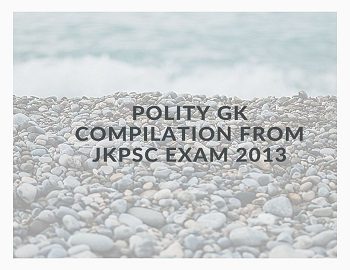
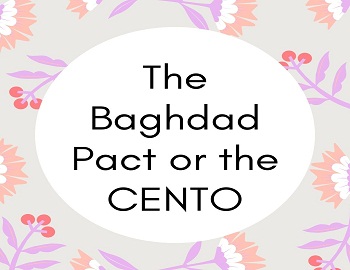
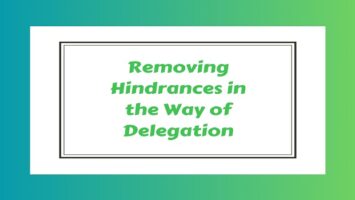
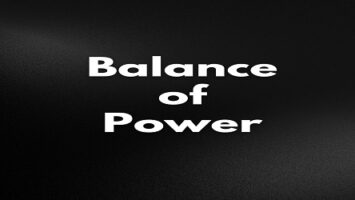
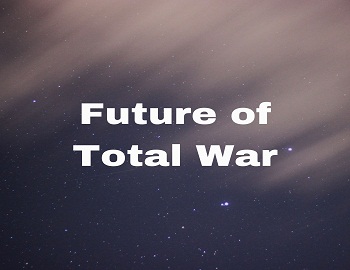
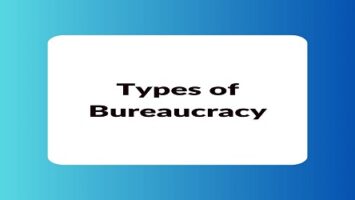
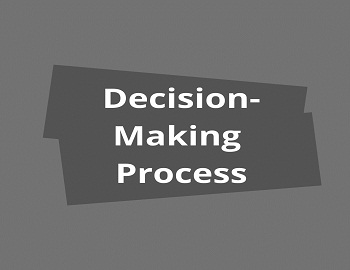
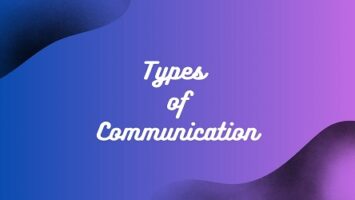
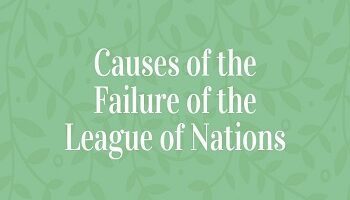
Comments (No)